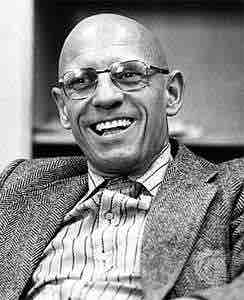Social control theory describes internal means of social control. It argues that relationships, commitments, values, and beliefs encourage conformity—if moral codes are internalized and individuals are tied into broader communities, individuals will voluntarily limit deviant acts. This interpretation suggests the power of internal means of control, such as one's own conscious, ego, and sensibilities about right and wrong, are powerful in mitigating the likelihood that one will deviate from social norms. This stands in contrast to external means of control, in which individuals conform because an authority figure (such as the state) threatens sanctions should the individual disobey.
Social control theory seeks to understand how to reduce deviance. Ultimately, social control theory is Hobbesian; it presupposes that all choices are constrained by social relations and contracts between parties. Like Hobbes, adherents to social control theory suggest that morality is created within a social order by assigning costs and consequences to certain actions that are marked as evil, wrong, illegal, or deviant.
Jackson Toby
An internal understanding of means of control became articulated in sociological theory in the mid-twentieth century. In 1957, Jackson Toby published an article entitled "Social Disorganization and Stake in Conformity: Complementary Factors in the Predatory Behavior of Hoodlums," which discussed why adolescents were inclined or disinclined to engage in delinquent activities. Toby argued that individuals engaged in non-delinquent community activities felt as thought they had too much to lose by joining delinquent groups and, hence, had a "stake in conformity." The notion of an individual being shaped by his ties to his community, of having a "stake in conformity," laid the groundwork for the idea of internalized norms that act as a method of social control.
F. Ivan Nye
Toby's study was followed in 1958 by F. Ivan Nye's book Family Relationships and Delinquent Behavior. Nye carried on the tradition of studying juvenile delinquency as a means of theorizing about deviance and social control. Nye conducted formal interviews of 780 young people in Washington State, though his sample was criticized for not including individuals from urban backgrounds and for only selecting individuals who were likely to describe their families unfavorably. Nye focused on the family unit as a source of control and specified three types of control: (1) direct control, or the use of punishments and rewards to incentivize particular behaviors; (2) indirect control, or the affectionate identification with individuals who adhere to social norms; and (3) internal control, or the manipulation of an individual's conscience or sense of guilt to encourage conformity.
Youth may be directly controlled through constraints imposed by parents, through limits on the opportunity for delinquency, or through parental rewards and punishments. However, youth may be constrained when free from direct control by their anticipation of parental disapproval (indirect control), or through the development of a conscience, an internal constraint on behavior.
Michel Foucault
How do individuals develop a particular conscience that promotes social adherence? This is the question taken up by social theorist Michel Foucault in his 1975 seminal text, Discipline and Punish: The Birth of the Prison. Foucault argues that the eighteenth century introduced a new form of power: discipline. Prior to this period, government achieved social control by the mere regulation of bodies. Deviants were controlled by the threat and frequent use of the death penalty or indefinite incarceration.
Discipline, however, is a power relation in which the subject is complicit. Rather than the state only regulating bodies, the state began to achieve social control by molding the minds of its subjects such that individuals were educated to conform even when out of the direct gaze of the punishing authority. The training of subjects' minds occurs broadly in society via socialization, or the lifelong process of inheriting, interpreting, and disseminating norms, customs, and ideologies. Simply by living within a particular cultural context, one learns and internalizes the norms of society .

Michel Foucault
In his 1975 seminal text, Discipline and Punish: The Birth of the Prison, Michel Foucault identifies a new form of power introduced in the eighteenth century: discipline.